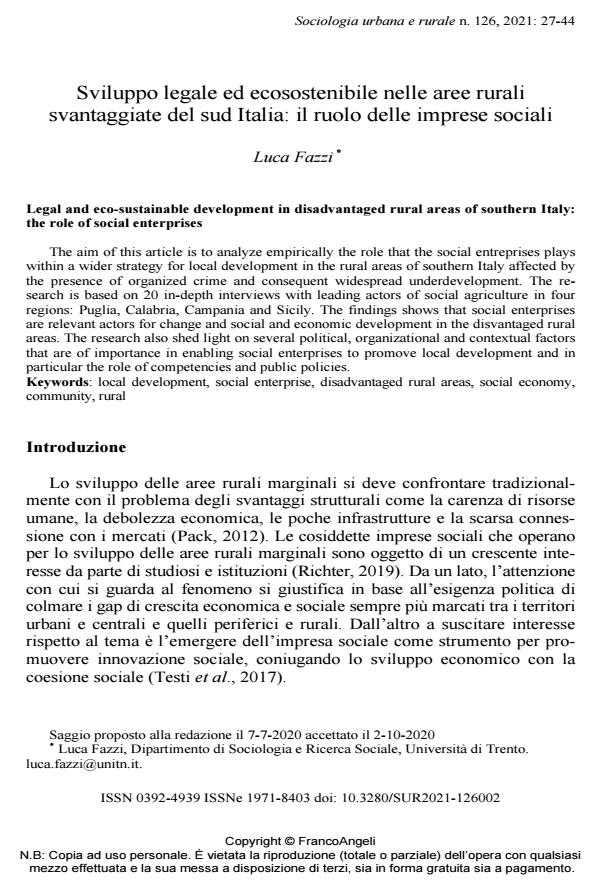Legal and eco-sustainable development in disadvantaged rural areas of southern Italy: the role of social enterprises
Journal title SOCIOLOGIA URBANA E RURALE
Author/s Luca Fazzi
Publishing Year 2022 Issue 2021/126
Language Italian Pages 18 P. 27-44 File size 193 KB
DOI 10.3280/SUR2021-126002
DOI is like a bar code for intellectual property: to have more infomation
click here
Below, you can see the article first page
If you want to buy this article in PDF format, you can do it, following the instructions to buy download credits

FrancoAngeli is member of Publishers International Linking Association, Inc (PILA), a not-for-profit association which run the CrossRef service enabling links to and from online scholarly content.
The aim of this article is to analyze empirically the role that the social entreprises plays within a wider strategy for local development in the rural areas of southern Italy affected by the presence of organized crime and consequent widespread underdevelopment. The research is based on 20 in-depth interviews with leading actors of social agriculture in four regions: Puglia, Calabria, Campania and Sicily. The findings shows that social enterprises are relevant actors for change and social and economic development in the disvantaged rural areas. The research also shed light on several political, organizational and contextual factors that are of importance in enabling social enterprises to promove local development and in particular the role of competencies and public policies.
Keywords: local development, social enterprise, disadvantaged rural areas, social economy, community, rural
- Agricoltura Sociale e Servizio Sociale: analisi di un rapporto tra passato e presente Carlotta Mozzone, in WELFARE E ERGONOMIA 1/2025 pp.51
DOI: 10.3280/WE2025-001004
Luca Fazzi, Sviluppo legale ed ecosostenibile nelle aree rurali svantaggiate del sud Italia: il ruolo delle imprese sociali in "SOCIOLOGIA URBANA E RURALE" 126/2021, pp 27-44, DOI: 10.3280/SUR2021-126002